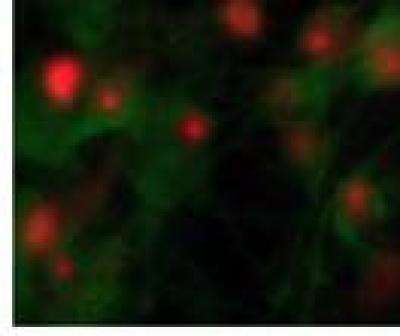Rat hippocampal neurons: An executor of neuroinflammation

Recent findings suggest that Toll-like receptor 4 expressed in the central nervous system, especially in glial cells, plays a vital role in neuroinflammation and neurodegenerative conditions. Traditional theory suggests that neurons are injured by inflammatory factors released from glial cells, and that neurons are the victims of neuroinflammation. However, it has recently been suggested that Toll-like receptor 4 is expressed by cerebral cortical neurons.
Yae Hu and team from Medical School of Nantong University found that lipopolysaccharide participates in neuroinflammation by stimulating Toll-like receptor 4/nuclear factor-?B pathway in hippocampal neurons. Researchers believe that neurons may be both "passive victims" and "activators" of neuroinflammation.
These findings were published in the Neural Regeneration Research (Vol. 8, No. 16, 2013).
More information: Hu YE, Mao JH, Zhang Y, Zhou AL. Role of Toll-like receptor 4 in inflammatory reactions of hippocampal neurons. Neural Regen Res. 2013;8(16):1465-1472. www.sjzsyj.org:8080/Jweb_sjzs/ … ttachType=PDF&id=615
















